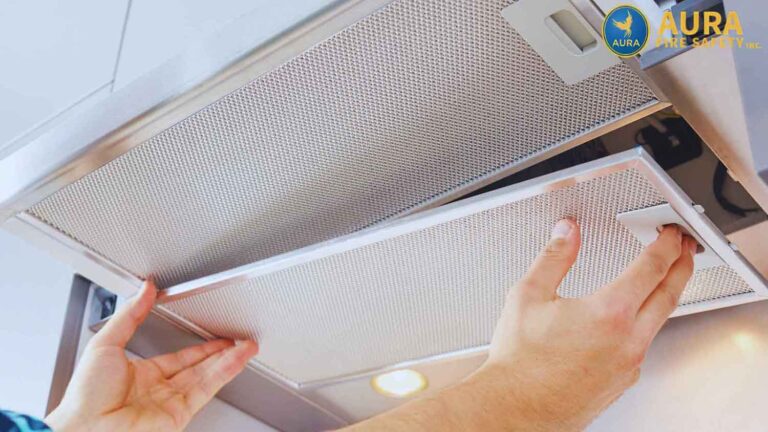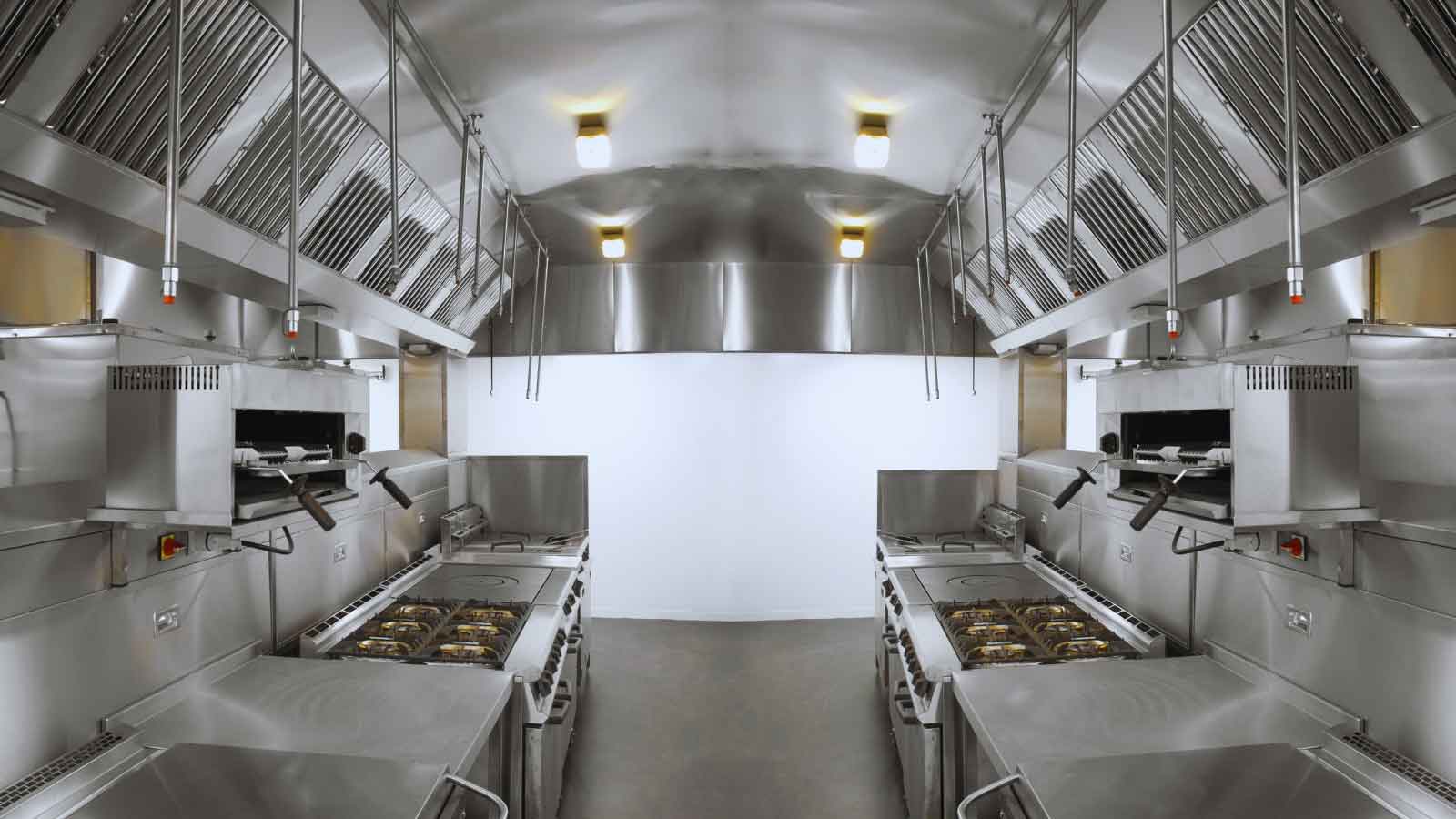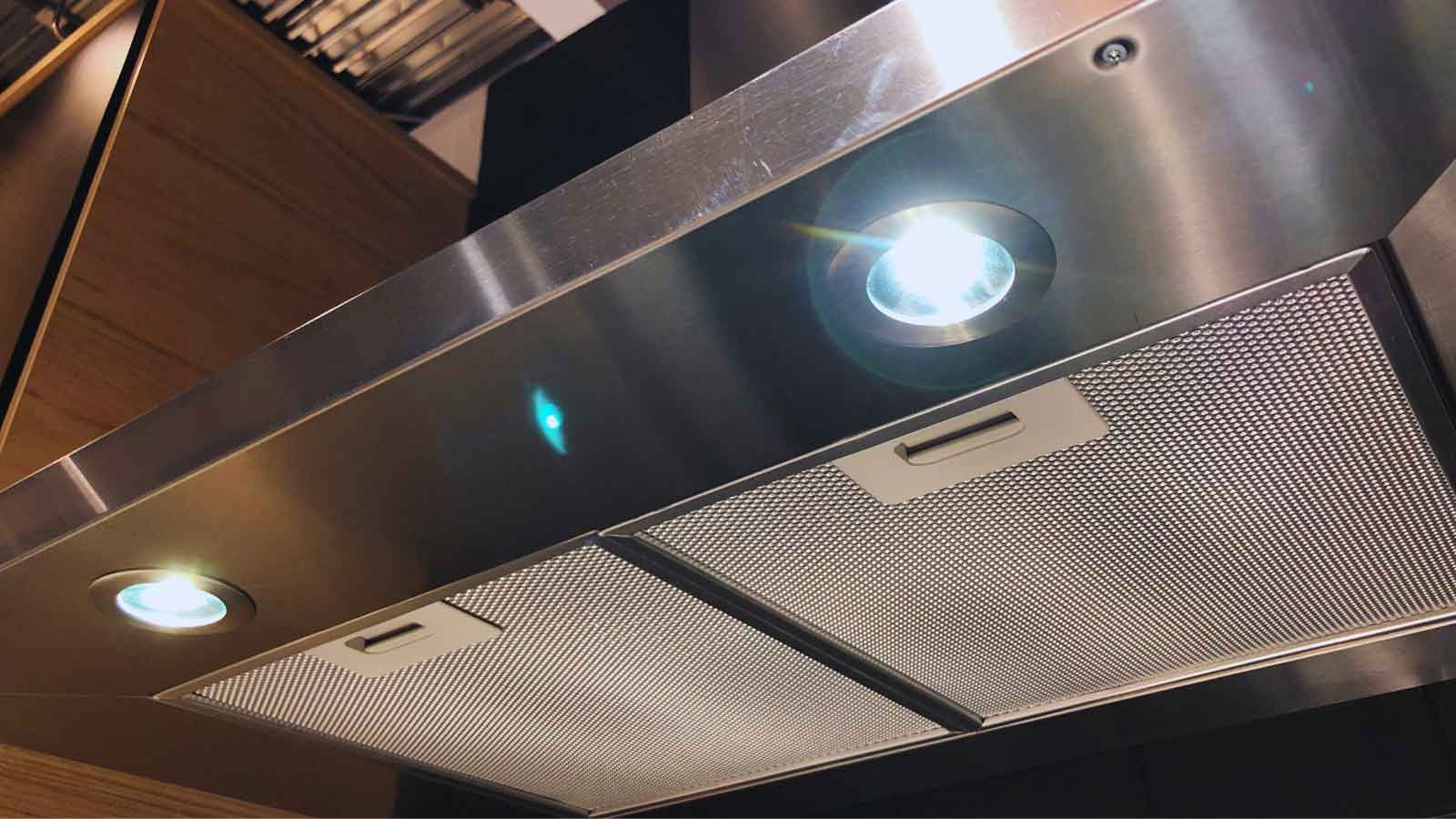Commercial kitchens rely heavily on their kitchen hood fire suppression systems to safeguard people, property, and business operations. Yet, simply having these systems installed is not enough.
Get in Touch for Fire Protection Services
Regular inspections ensure these vital systems function correctly, minimizing fire risks and maintaining compliance with safety standards. This article explores why regular kitchen hood inspections are critical, what common issues they uncover, and how they protect your kitchen and staff.
Why Kitchen Hood Inspections Matter
Consistent evaluations of your kitchen hood fire suppression system ensure that all components, such as nozzles, detection lines, control panels, and suppressant agents, are intact, functional, and compliant with safety standards. These inspections ensure that the fire suppression system is ready to perform when needed, protecting your kitchen from the risk of a fire emergency.
Without timely system checks, undetected faults can lead to system failure during a fire, resulting in significant damage, injuries, or loss of life. Our inspections focus on ensuring the suppression system operates effectively, preventing fires from escalating. This proactive approach helps you meet local fire codes, providing peace of mind and safety for your kitchen operations.
What Risks Do Inspections Prevent?
System evaluations help identify vulnerabilities that could compromise fire suppression. These include blocked or malfunctioning nozzles, damaged detection tubing that delays discharge, and depleted, leaking, or expired suppressant cylinders.
Addressing these issues proactively helps prevent uncontrolled fires, limits property damage, and reduces the risk of business interruptions or denied insurance claims. These checks also reveal grease accumulation, one of the leading causes of kitchen fires, allowing for timely remediation.
How Inspections Protect Health and Safety
Inspections play a vital role in maintaining a healthier, safer kitchen environment. By confirming that ventilation components like ducts and filters are clear of grease-related obstructions, they help reduce smoke buildup and ensure efficient air circulation. This supports proper exhaust performance, which is essential for minimizing exposure to harmful particulates, heat, and cooking fumes.
Clean airflow not only lowers the risk of flare-ups but also helps reduce respiratory issues among staff. Regulatory compliance also hinges on documented inspections that prove your kitchen’s fire suppression and ventilation systems are functioning safely and effectively. These checks are both a safety measure and a legal necessity.
Common Problems Found in Inspections
Regular inspections often reveal recurring issues that compromise the safety and effectiveness of your kitchen hood fire suppression system. Identifying these problems early is critical to preventing system failure and ensuring a safe cooking environment.
What Are the Warning Signs of Hood Problems?
Common warning signs include excessive grease buildup that exceeds safety limits, corrosion or damage to ductwork, and blocked, broken, or misaligned nozzles. Sensors may malfunction or fail to detect heat properly. Additional red flags include unusual odors indicating trapped smoke or grease, inconsistent activation during system tests, and visible damage to control panels or suppressant cylinders.
How Do These Issues Affect Kitchen Operations?
If these problems go unresolved, your commercial kitchen fire suppression system may not activate when needed, increasing the risk of uncontrolled fires that endanger staff and property.
Poor ventilation due to blocked ducts also reduces air quality, causing discomfort and potential health hazards for employees. Failure to address these issues can lead to expensive emergency repairs, regulatory penalties, and even forced kitchen closure.
Compliance and Regulatory Requirements
Ensuring your kitchen hood fire suppression systems comply with fire safety regulations is not just a legal formality. It is fundamental to protecting your commercial kitchen, employees, and customers.
Fire codes and insurance providers strictly require adherence to these regulations to minimize fire risks associated with commercial cooking operations. Regular, professional inspections verify that your system operates safely and effectively, avoiding costly penalties, insurance issues, or even forced business shutdowns.
Are Inspections Legally Required?
Most jurisdictions, in compliance with NFPA 17A, require semi-annual inspections of commercial kitchen fire suppression systems. These evaluations must be conducted by authorized individuals under local codes to ensure all components, such as detection lines, nozzles, and control panels, are functioning correctly. Failure to complete these inspections can result in code violations, fines, or forced closures until deficiencies are addressed.
Get in Touch for Fire Protection Services
What Standards Must Inspections Meet?
The backbone of commercial kitchen fire safety lies in compliance with several key standards:
- NFPA 96 (Standard for Ventilation Control and Fire Protection of Commercial Cooking Operations): This is the primary code that governs the design, installation, operation, inspection, and maintenance of commercial kitchen ventilation systems and kitchen hood fire suppression systems. NFPA 96 ensures that hoods, ducts, and fire suppression equipment are engineered to effectively contain and extinguish fires while controlling smoke and grease buildup.
- NFPA 17A (Standard for Wet Chemical Extinguishing Systems): This standard specifically addresses the use of wet chemical agents in extinguishing fires typical in commercial kitchens. NFPA 17A outlines system performance, installation, inspection, and maintenance requirements to guarantee rapid fire suppression without causing additional hazards.
- UL 300 (Standard for Fire Testing of Fire Extinguishing Systems for Protection of Commercial Cooking Equipment): UL 300 is a critical certification that verifies a kitchen hood fire suppression system’s ability to suppress high-temperature grease fires common in commercial kitchens. Many older suppression systems were not designed to meet UL 300 standards, making upgrades essential for compliance and adequate fire protection.
Meeting these standards means your kitchen hood fire suppression system is tested and certified to quickly detect and suppress fires, minimizing damage and risk to human life. Moreover, insurance companies often require documented compliance with these codes to approve coverage and reduce premiums.
READ MORE: Is Your Sprinkler System Really Compliant? NFPA 25 Inspections Done Right
Inspection Frequency and Professionals
Commercial kitchen fire suppression systems must be inspected at regular intervals to meet safety regulations and prevent system failure. Inspections are typically required every six months, though high-volume kitchens may need more frequent checks. To ensure accuracy and compliance, inspections should be conducted by individuals familiar with current fire codes and authorized to validate system readiness.
How Often Should Inspections Be Scheduled?
Most commercial kitchens must have their kitchen hood fire suppression systems inspected every six months. This semi-annual schedule is standard in many jurisdictions, including California, and complies with local fire codes and insurance requirements. However, the exact frequency may vary depending on:
- Kitchen Size and Cooking Volume: Larger kitchens or those with high cooking activity might need inspections every three months. Higher grease accumulation increases fire risk and demands closer monitoring.
- Local Fire Authority Regulations: Some fire departments or regulatory bodies enforce stricter inspection intervals to address regional risks. Staying updated with these requirements ensures complete compliance.
Professional fire protection services often offer to monitor inspection due dates and coordinate visits to minimize disruption to kitchen operations.
Should You Choose DIY or Professional Inspectors?
While staff or cleaning crews can manage routine surface maintenance, full inspections must be carried out by a licensed professional with fire system expertise. Here’s why it matters:
- Thoroughness: Professionals understand how to test system functions, inspect internal components, and verify readiness
- Documentation: Only authorized personnel can issue the inspection records required by fire departments and insurers
- Risk Prevention: Early detection of subtle system faults reduces the chance of failure during an emergency and avoids costly disruption
Relying solely on non-certified cleaning teams or untrained personnel can lead to overlooked hazards and compliance issues.
READ MORE: Why Partnering with a Trusted Fire Protection Company is Vital for Your Business
Let Experts Fix It Right the First Time
Managing a commercial kitchen requires a steadfast focus on safety. Your kitchen hood fire suppression system is your first line of defense against fires, but only if it is properly maintained and fully operational. Regular inspections are critical not only to comply with regulations but also to protect lives, property, and business continuity.
Aura Fire Safety is a trusted provider of fire protection services, offering expert inspections, maintenance, and compliance support to keep your kitchen’s suppression system ready for any emergency. With certified specialists and proactive scheduling, Aura ensures you never miss essential inspection deadlines, giving you confidence that your kitchen is safe and fully compliant.
Reach out to Aura Fire Safety today for dependable service that protects your business and provides peace of mind.
Get in Touch for Fire Protection Services



